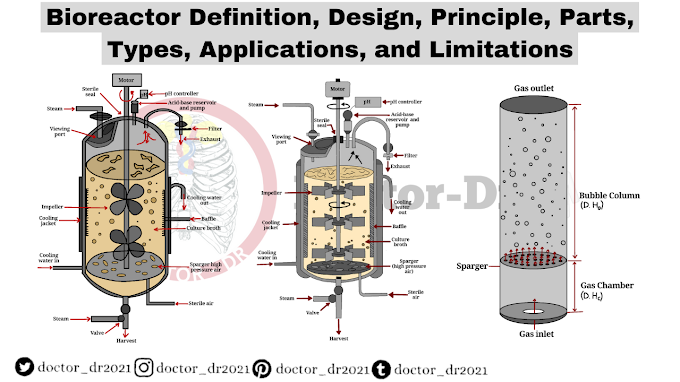Introduction:
Microbiology has undergone a transformation in the past decade with several groundbreaking discoveries and advancements in the field. From understanding how the microbiome affects human health to the discovery of new bacterial species, microbiologists have made significant strides in uncovering the mysteries of the microbial world. In this blog post, we'll explore the top 10 breakthroughs in microbiology research of the past decade, providing a comprehensive ranking and analysis of each discovery.
1. CRISPR-Cas9 Gene Editing System:
One of the most significant microbiology breakthroughs of the past decade is the discovery of the CRISPR-Cas9 gene editing system. This revolutionary technology has allowed researchers to manipulate DNA with unprecedented precision, making it a valuable tool for genetic engineering and disease treatment. CRISPR-Cas9 has been used to create disease-resistant crops, develop gene therapies, and explore the mechanisms of genetic disorders.
2. Microbiome and Human Health:
The human microbiome has been a hot topic in microbiology research over the past decade. Studies have shown that the microbiome, the collection of microbes that live on and in the human body, plays a vital role in human health. Researchers have linked the microbiome to various diseases, including obesity, diabetes, and autoimmune disorders. As a result, microbiome research has become a critical area of study for developing new treatments and therapies.
3. Antibiotic Resistance:
Antibiotic resistance is a growing public health threat that has received significant attention over the past decade. Researchers have made significant strides in understanding the mechanisms of antibiotic resistance, identifying new drug targets, and developing new strategies for combatting antibiotic-resistant bacteria. These efforts have led to the development of new antibiotics and alternative therapies, such as phage therapy, that can be used to treat antibiotic-resistant infections.
4. Synthetic Biology:
The field of synthetic biology has exploded over the past decade, with researchers developing new tools and technologies for creating novel biological systems. Synthetic biologists have created artificial cells, engineered bacteria to produce new compounds, and designed biosensors for detecting environmental pollutants. These advancements hold great promise for developing new treatments and solutions for a variety of problems.
5. New Bacterial Species:
Despite the vast number of microbial species on earth, scientists are still discovering new bacterial species. In the past decade, researchers have identified new bacterial species with unique properties and characteristics, such as the ability to break down toxic pollutants or produce valuable compounds. These discoveries provide new avenues for exploring the diversity and complexity of the microbial world.
6. Virus Discovery:
The discovery of new viruses has been another significant breakthrough in microbiology research over the past decade. Researchers have identified new viruses that infect bacteria, plants, and animals, including humans. These discoveries have improved our understanding of viral diversity, transmission, and pathogenesis, and have the potential to lead to the development of new antiviral therapies.
7. Microbial Interactions:
The study of microbial interactions has revealed the complex relationships that exist between different microbial species. Researchers have identified symbiotic relationships, where different species work together to survive, as well as competitive relationships, where different species compete for resources. These discoveries have provided insights into the functioning of microbial communities and the role of microbial interactions in environmental processes.
8. Biofilm Formation:
Biofilms, which are communities of bacteria that attach to surfaces, have been the subject of significant research over the past decade. Researchers have uncovered the mechanisms of biofilm formation, identified new biofilm inhibitors, and developed new strategies for disrupting biofilms. These discoveries provide new avenues for controlling biofilm-related infections and improving the efficiency of industrial processes that rely on biofilms.
9. Metagenomics:
Metagenomics is a field of study that uses high-throughput sequencing technologies to analyze complex microbial communities. In the past decade, researchers have used metagenomics to study diverse microbial ecosystems, including the human gut microbiome, soil microbiomes, and microbial communities in extreme environments. These studies have provided new insights into the functions and diversity of microbial communities, and have the potential to lead to the development of new therapies and technologies.
10. Microbial Biotechnology:
Microbial biotechnology involves the use of microbes to produce valuable compounds or perform specific tasks. In the past decade, researchers have made significant advancements in microbial biotechnology, developing new methods for engineering microbes to produce biofuels, pharmaceuticals, and other valuable products. These discoveries have the potential to revolutionize the way we produce and consume a variety of products, and to contribute to the development of a more sustainable and environmentally-friendly future.
Conclusion:
The past decade has been a period of remarkable progress in the field of microbiology, with researchers making significant breakthroughs in understanding the microbial world. From gene editing to the microbiome and beyond, these discoveries have the potential to transform the way we approach disease treatment, biotechnology, and environmental conservation. By exploring these top 10 microbiology breakthroughs of the past decade, we can gain a deeper understanding of the complexity and diversity of the microbial world, and the critical role that microbiology plays in shaping our lives and the world around us.


%20Types,%20Functions,%20Tropism,%20Crosstalk%20&%20Agricultural%20Applications.webp)





